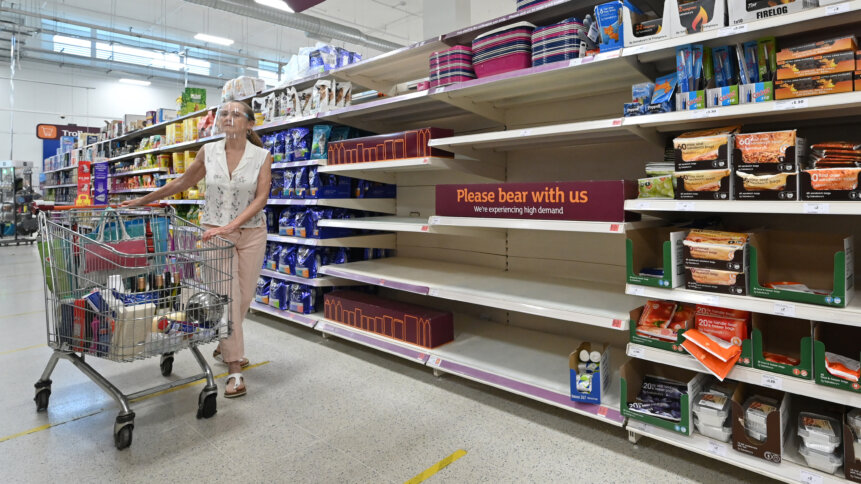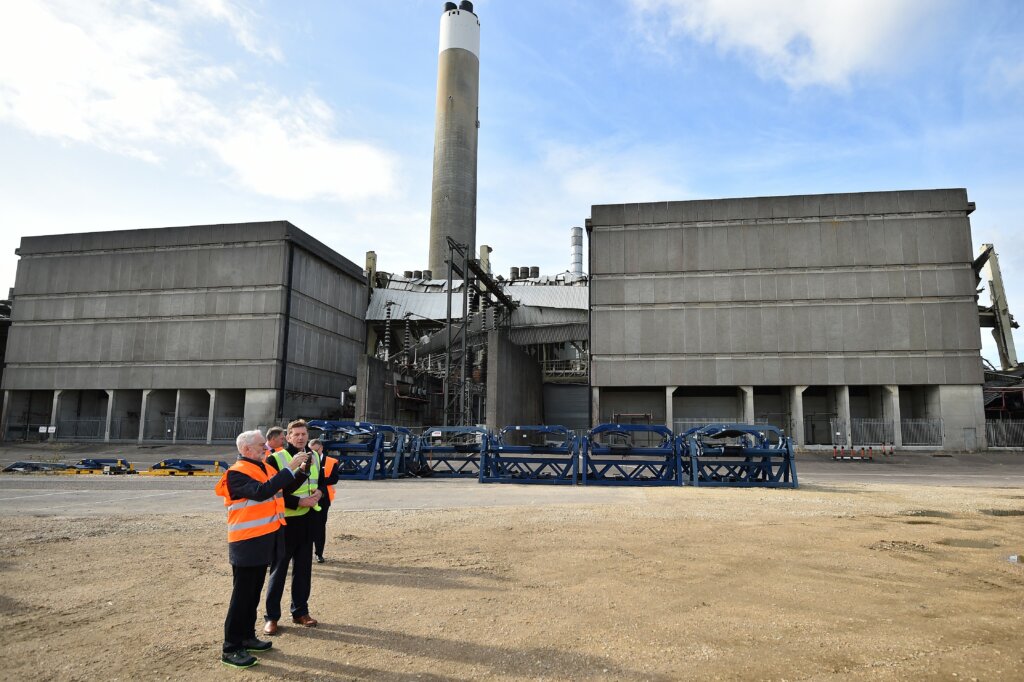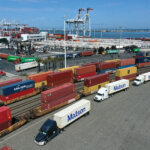Is the UK doing enough to deal with the energy crisis and supply chain disruption?

Supply chain disruption continues to be an intrusive presence affecting business continuity globally. In the UK, the effects of Brexit are still being felt as supply chains are disrupted every now and then, even before the pandemic followed shortly thereafter and worsened conditions. These disruptions are now starting to have big impacts on businesses in the country.
Despite numerous strikes by lorry drivers, transportation companies, and others within the logistics value chain, many of the problems were not as drastic as the current energy crisis. According to reports in Bloomberg, the fallout from Europe’s energy crisis is sending fresh shockwaves through the UK food sector.
One business that is being continuously disrupted is Ocado Group Plc. The online grocer has to stop supplying frozen products to customers as the meat industry was facing a sudden shortage of carbon dioxide, which is used to stun pigs and chickens for slaughter as well as in packaging.
While Brexit and the pandemic had already caused sufficient disruption to the beleaguered UK supply chain, the food industry seems to be also taken a big hit. Several weeks earlier, stores were facing shortages of essential items like milk and bread as well as bacon, while fast-food companies like McDonald’s, KFC, and Nandos also suffering shortages due to supply chain disruptions.
With the British Meat Processors Association announcing that carbon dioxide supplies could run out within two weeks, the UK government official has begun discussions on how they can deal with the energy crisis at the soonest possibility.
A bigger supply chain crisis
Part of the reason for the shortage of carbon dioxide in the UK is caused by rising gas prices. Reports show that wholesale gas prices in the UK have surged by 250% since the beginning of 2021, with a whopping 70% rise since August.
SkyNews reports that UK’s reliance on gas for heating and power generation makes it a crucial energy supply. It looks like 38% of the UK’s gas consumption was used for domestic heating, 29% for electricity generation, and 11% for industrial and commercial use.

(Photo by Glyn KIRK / AFP)
UK energy regulator Ofgem has moved to set a price cap on gas and electricity bills. This means that any increase in gas prices will only result in a loss for energy companies. Reports show that government ministries are reluctant to write off debts for smaller energy companies, with some facing bankruptcy soon.
The government has discusses issuing short-term loans to such companies, until gas prices subside. However, these subsidies will still not solve the main energy problem that is disrupting various industries. The UK does have alternatives to energy, such as coal-burning stations and wind turbines. However, they are not sufficient enough to provide the necessary power to ensure services are not disrupted.
At the same time, the demand for gas in Asia has seen a big increase in natural gas prices in recent times. Reports also state that the European Commission has been asked to investigate the role of that a Russian state-backed gas company played in soaring gas prices on the continent.
The reality though, is that the UK simply wasn’t prepared to deal with this latest supply chain disruption. When Brexit was approved, the authotirities should have already made the relevant continuity preparations to ensure the supply chain will not face future disruption on a similar scale. The pandemic may disrupt manual labor but with more technologies available, an energy crisis could have been averted, if the right steps were taken.
The role of technology
So how can businesses rely on technology to deal with the supply chain disruption caused by the energy crisis? While it is understandable that things can get really bad if the energy crisis is not solved in the UK, there are still some possibilities and alternatives businesses can consider to make sure they don’t suffer big losses.
For small businesses, they can consider analytical tools to understand their consumer habits and match them to their product supply. Not only will these help them plan their stocks better, but they will also enable them to keep track of their products and plan ahead with better visibility, to avoid any disruption to their supplies.
For larger businesses, there is a myriad of technologies they can look to, to fend off interruptions to the supply chain. For example, fast food companies should look to implement blockchain in their supply chains to ensure they have visibility over their products. If there was a disruption to their supply, they would know in advance and make the necessary amendments to sort it in time.
More importantly, the UK has to start looking at alternatives in its supply chain. Sustainable energy sources are becoming mainstream, so perhaps the government could offer more opportunities for businesses to make the most out of them. Also, the heavy reliance on a single form of energy would only leave them at the mercy of the supplier.
YOU MIGHT LIKE

Tech giants are becoming green energy barons
Strikes are inevitable and may only increase in times to come. However, alternatives are available. Autonomous deliveries leveraging modern technologies like drones can be sought to ease off the pressure on supply chains.
At the end of the day, businesses do not want to be dealing with supply chain problems as it will only create bigger problems for every link along the chain. Both the government and businesses need to work together to see what ways are best to tackle the problem. There are technological solutions available, the only question is — will they be willing to take a chance on it or continue to rely on the same methods they have been using all along?









